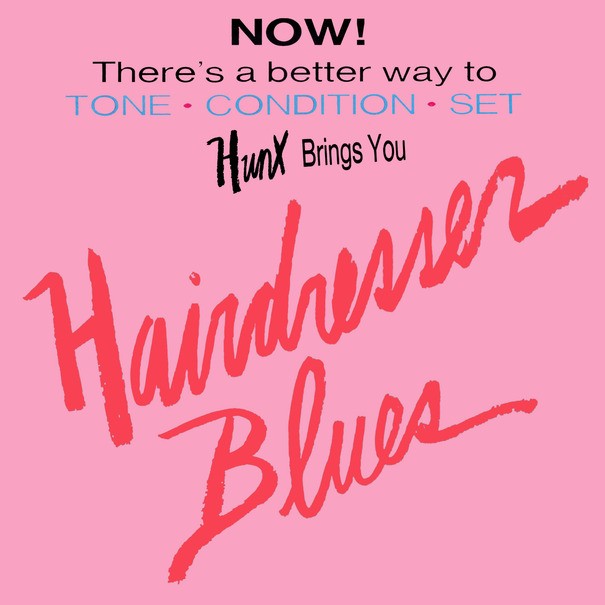“Hairdresser Blues”
Artist: Hunx
Label: Hardly Art
“Dropping out feels nice, and I don’t wanna be a fool,” Hunx, the onstage persona of Oakland singer-songwriter Seth Bogart, sings on the title track of his new album, “Hairdresser Blues.” Given this lyric, the title and the ’60s girl-group inspiration, one might expect Bogart’s first solo effort to sound something like a full album version of “Beauty School Dropout.” But Bogart hasn’t softened quite that much. Not musically, anyway.
The album begins with the strum of an acoustic guitar on “Your Love is Here to Stay” — not something you would ever hear when His Punx, the band that backed him up on past releases “Gay Singles” and last year’s “Too Young to Be in Love,” was sharing the stage. For a moment, “Hairdresser Blues” wants you to believe that Bogart is slowing down and dialing back to find something more meaningful than the ramshackle, puppy-love rock he’s known for. But the song kicks into gear not long after, and when the album ends less than 30 minutes later, it’s clear that Bogart can find all kinds of sadness without slowing down to look for it.
Not that Bogart hasn’t been sad before. “Too Young to Be in Love” was full of wishing and longing for something that wasn’t there, but also full of hope. The peppy, throwback garage pop never directly opposed his lyrics the way they do now. The penultimate track on that album posed a direct question in its title, “Can We Get Together?” On “Hairdresser Blues,” the second to last song feels like a reaction to a rejection that ensued: “Say Goodbye Before You Leave.”
The song is about Jay Reatard, the late punk-rock lightning rod that befriended Bogart and brought him on tour several years ago. Lyrically, he has no problem being direct: “I miss the days you’d call me on the phone / And the stupid things we’d do”. A small and sweet organ line rolls in with the chorus, which is pretty much the only variance from the guitar, bass and drum instrumentation throughout.
In this sense, Bogart hasn’t musically evolved, but who would want him to? The simple arrangements and unpolished vocals are what allow his best songs to shine. And the album is full of his best songs to date. Bogart has never had any trouble generating an infectious hook, but on “Hairdresser Blues” he strings them together more cohesively than ever before. The songs are concise, not slapdash, and that wasn’t always the case in the past.
Even on the simple-minded, lust-fueled and uncannily catchy first single, “Private Room,” Bogart can’t help but lament a little. He starts the song saying, “It’s been so long since we’ve been together,” and repeats it throughout. Even when the sing-a-long chorus hits, that taste of distance and loneliness will remain in your mouth.
“Do You Remember Being a Roller?” feels less like a celebration of the teeny bopper icons, the Bay City Rollers, and more like Bogart wishing aloud that he had been there when they first hit it big. Even though there’s plenty of joy throughout “Hairdresser Blues”, it’s almost always tampered by some source of melancholy — usually a want for times past.
Slower and softer than anything on the album, closer “When You’re Gone” is a letter from Bogart to his father, who committed suicide when he was a teenager. Even with the well of emotions and memories on the topic Bogart must have to draw from, he simply says, “I want to believe that you are here and you’re with me” before a simple and unpolished electric guitar line picks the song up off the ground.
This transition moment is the best example of “Hairdresser Blues” getting the listener to totter between thinking it is too happy to be sad, or too sad to be happy. Somehow it is both at once, and no one could capture that quite like Hunx.
3 out of 4 stars








